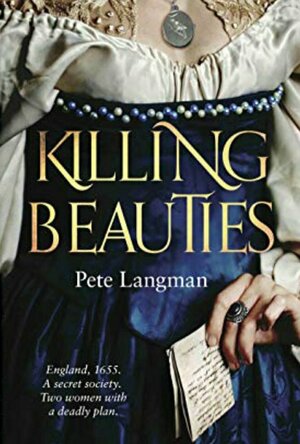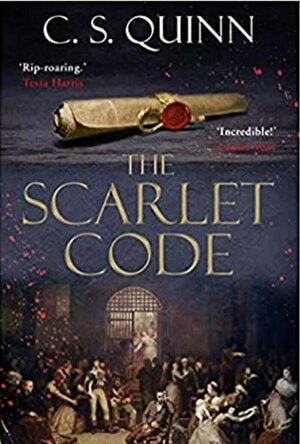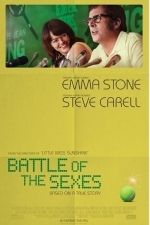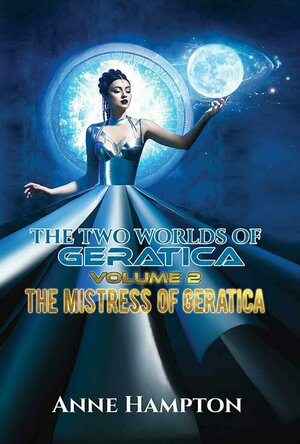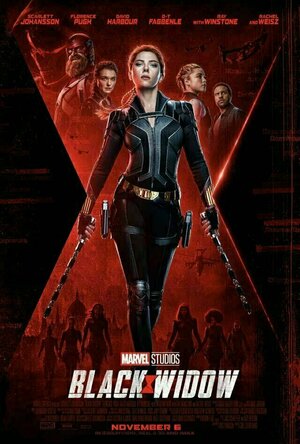Search
Search results
ClareR (6081 KP) rated Killing Beauties in Books
Feb 5, 2020
Killing Beauties is about the female spies (She-Intelligencers - isn’t it funny how they could make even that sound like an insult 🤔) who worked for the exiled Charles Stuart during Cromwells reign. Charles Stuart himself sends two female spies back to England to turn Cromwell’s Secretary of State, John Thurloe, into their accomplice using their feminine wiles and training. This is actually based on the true story of two female spies - not something that any of us are usually taught in history lessons at school (perhaps due to their methods!). This is a story with heaps of subterfuge and betrayal, and women who are determined to do the best job they can for their King and their secret society. It was quite amusing in places, which was a little light relief in an otherwise tense story. There’s loads of great historical detail too - think sights, smells and sounds.
It’s a really fun book - fast-paced and with a feeling of danger. I loved it!
Many thanks to The Pigeonhole for serialising the book, and for Pete Langdon for commenting along with us readers!
It’s a really fun book - fast-paced and with a feeling of danger. I loved it!
Many thanks to The Pigeonhole for serialising the book, and for Pete Langdon for commenting along with us readers!
ClareR (6081 KP) rated The Scarlet Code in Books
Aug 23, 2020
These books must surely at least make it on to TV? They read like a film - I absolutely love them! I don’t know whether there were all-action, female spies around this time (I know there were female spies during the time just after the English Civil War, so why would they stop?), and frankly, I don’t much care. Well, I do, but what I’m hoping to get across here, is how much I LOVED this book! It’s rich in historical detail, the character development is equally good.
I’m really enjoying following Attica Morgan’s exploits (see what I did there? That’s not even a hint that I want more, that’s a “let there be more!”). Attica’s love of Paris, even at this really uncertain time between the fall of the Bastille and the actual start of the Revolution, is so well described that I felt that I could be there. I love a book where I can learn something. I’d always thought that the people released the prisoners from the Bastille (or in fact they didn’t, because it was virtually empty - or so I’ve been told), and then BAM! Voila la Révolution française! Well, by the sounds of it there was a bit of a tense hiatus between one thing and the next (we won’t discuss the fact that I was a French teacher in a former life - sshh!).
Anyway, if you enjoy a well written, historical romp, with an opinionated, strong female lead character - then this is the book for you! I can’t wait for the next one (not even hinting)!!
Many thanks to Readers First for sending me a copy of this book.
I’m really enjoying following Attica Morgan’s exploits (see what I did there? That’s not even a hint that I want more, that’s a “let there be more!”). Attica’s love of Paris, even at this really uncertain time between the fall of the Bastille and the actual start of the Revolution, is so well described that I felt that I could be there. I love a book where I can learn something. I’d always thought that the people released the prisoners from the Bastille (or in fact they didn’t, because it was virtually empty - or so I’ve been told), and then BAM! Voila la Révolution française! Well, by the sounds of it there was a bit of a tense hiatus between one thing and the next (we won’t discuss the fact that I was a French teacher in a former life - sshh!).
Anyway, if you enjoy a well written, historical romp, with an opinionated, strong female lead character - then this is the book for you! I can’t wait for the next one (not even hinting)!!
Many thanks to Readers First for sending me a copy of this book.
Bob Mann (459 KP) rated Battle of the Sexes (2016) in Movies
Sep 29, 2021
Tennis and sex, but without the grunting.
Here’s a good test of someone’s age…. ask the question “Billie-Jean?”. Millennials will probably come back with “Huh?”; those in their 30’s or 40’s might come back with “Michael Jackson!”; those older than that will probably reply “King!”.
“Battle of the Sexes” (which I just managed to catch before it left cinemas) tells the true-life story of US tennis star Billie-Jean King (Emma Stone, “La La Land“). The year is 1973 and Billie-Jean is riding high as the Number 1 female tennis player. She is a feminist; she is married (to hunk Larry – no not that one – King played by Austin Stowell (“Whiplash“, “Bridge of Spies“)); …. and she is also attracted to women, not something she has yet acted on. That all changes when her path crosses with LA-hairdresser Marilyn (Andrea Riseborough, “Birdman“, “Oblivion”).
But this is a side story: the main event is a bet made by aging ex-star Bobby Riggs (Steve Carell, “Foxcatcher“); that – even at his age – as a man he could beat the leading female tennis player of the day.
The film is gloriously retro, starting with the old-school 20th Century Fox production logo. And it contains breathtakingly sexist dialogue by writer Simon Beaufoy (“Everest“, “The Full Monty”). Surely men couldn’t have been so crass and outrageous in the 70’s? Sorry ladies, but the answer is yes, and the film is testament to how far women’s rights have come in 50 years.
This is a tour de force in acting from both Emma Stone and Steve Carell, particularly the latter: a scene where Carell tries to re-engage with his estranged wife (Elisabeth Shue, “Leaving Las Vegas”) is both nuanced and heart-breaking. Stone’s performance is also praiseworthy, although it feels slightly less so as it is an impersonation of a (relatively) well-known figure: this is extremely well-studied though, right down to her strutting walk around the court which I had both forgotten and was immediately again reminded of.
One of my favourite movie awards are the Screen Actor’s Guild (SAG) “cast” awards that celebrate ensemble performances, and here is a film that should have been nominated (it unfortunately wasn’t). Andrea Riseborough; Natalie Morales (as fellow tennis player Rosie Casals); comedian Sarah Silverman (“A Million Ways to Die in the West“), almost unrecognisable as the brash publicist Gladys Heldman; Bill Pullman as LTA head Jack Kramer; the great Alan Cumming (“The Good Wife”) as the team’s flamboyant, gay, costume designer; Lewis Pullman as Riggs’s son Larry; Jessica McNamee (magnetic eyes!) as King’s Australian tennis nemesis Margaret Court. All bounce off the leads, and each other, just beautifully.
Cinematography by Linus Sandgren (“La La Land“) and editing by Pamela Martin (“Little Miss Sunshine”) unite to deliver one of the most sexually charged haircuts you are ever likely to see on the screen. For those put off by this aspect of the storyline, the “girl-on-girl action” is pretty tastefully done and not overly graphic: it’s mostly “first-base” stuff rather than “third-base”!
“What a waste of a lovely night”. Marilyn (Andrea Riseborough) and Billie-Jean (Emma Stone) get serious.
Directed with panache by the co-directors of the 2006 smash “Little Miss Sunshine” – Jonathan Dayton and Valerie Faris – all in all it’s a delight, especially for older audiences who will get a blast of nostalgia from days when sports were still played at a slightly more leisurely pace… and definitely without the grunting.
“Battle of the Sexes” (which I just managed to catch before it left cinemas) tells the true-life story of US tennis star Billie-Jean King (Emma Stone, “La La Land“). The year is 1973 and Billie-Jean is riding high as the Number 1 female tennis player. She is a feminist; she is married (to hunk Larry – no not that one – King played by Austin Stowell (“Whiplash“, “Bridge of Spies“)); …. and she is also attracted to women, not something she has yet acted on. That all changes when her path crosses with LA-hairdresser Marilyn (Andrea Riseborough, “Birdman“, “Oblivion”).
But this is a side story: the main event is a bet made by aging ex-star Bobby Riggs (Steve Carell, “Foxcatcher“); that – even at his age – as a man he could beat the leading female tennis player of the day.
The film is gloriously retro, starting with the old-school 20th Century Fox production logo. And it contains breathtakingly sexist dialogue by writer Simon Beaufoy (“Everest“, “The Full Monty”). Surely men couldn’t have been so crass and outrageous in the 70’s? Sorry ladies, but the answer is yes, and the film is testament to how far women’s rights have come in 50 years.
This is a tour de force in acting from both Emma Stone and Steve Carell, particularly the latter: a scene where Carell tries to re-engage with his estranged wife (Elisabeth Shue, “Leaving Las Vegas”) is both nuanced and heart-breaking. Stone’s performance is also praiseworthy, although it feels slightly less so as it is an impersonation of a (relatively) well-known figure: this is extremely well-studied though, right down to her strutting walk around the court which I had both forgotten and was immediately again reminded of.
One of my favourite movie awards are the Screen Actor’s Guild (SAG) “cast” awards that celebrate ensemble performances, and here is a film that should have been nominated (it unfortunately wasn’t). Andrea Riseborough; Natalie Morales (as fellow tennis player Rosie Casals); comedian Sarah Silverman (“A Million Ways to Die in the West“), almost unrecognisable as the brash publicist Gladys Heldman; Bill Pullman as LTA head Jack Kramer; the great Alan Cumming (“The Good Wife”) as the team’s flamboyant, gay, costume designer; Lewis Pullman as Riggs’s son Larry; Jessica McNamee (magnetic eyes!) as King’s Australian tennis nemesis Margaret Court. All bounce off the leads, and each other, just beautifully.
Cinematography by Linus Sandgren (“La La Land“) and editing by Pamela Martin (“Little Miss Sunshine”) unite to deliver one of the most sexually charged haircuts you are ever likely to see on the screen. For those put off by this aspect of the storyline, the “girl-on-girl action” is pretty tastefully done and not overly graphic: it’s mostly “first-base” stuff rather than “third-base”!
“What a waste of a lovely night”. Marilyn (Andrea Riseborough) and Billie-Jean (Emma Stone) get serious.
Directed with panache by the co-directors of the 2006 smash “Little Miss Sunshine” – Jonathan Dayton and Valerie Faris – all in all it’s a delight, especially for older audiences who will get a blast of nostalgia from days when sports were still played at a slightly more leisurely pace… and definitely without the grunting.
Night Reader Reviews (683 KP) rated The Two Worlds of Geratica Volume 2: The Mistress of Geratica in Books
Jan 9, 2020
The Two Worlds of Geratica Volume 2: The Mistress of Geratica by Anne Hampton is a wonderful follow up to the first Volume. There is some overlap between this book and the first as this one starts ten years earlier then Volume 1. It also gets caught up to modern times quickly so this time change isnt too much of a problem. Once again it is important to remember that Geratica and its parallel, Geraticai, are similar to Earth but no the same place and the people who live there are not human.
Geratica is facing a time of political and economic turmoil due to the increasing number of radical thinkers in the realm. They are also in danger of spies from Geraticai who want to be their own world and not just a parallel of Geratica. As things reach a breaking point The Mistress of Geratica comes forward to aid in setting things right again. Sadly even that doesn't fix things right away.
Linda has a hard time getting bills passed through Parliament and Alexandras boyfriend, Tom, is caught in a compromising position. Alexandra finds herself gaining confidence as her own woman and makes some very big decisions for not only herself but for Geratica as a whole. It is questionable though if Geratica can survive the strikes and civil unrest and form a way to keep both the radicals and convinces happy. At the same time, the government in Geraticai keeps changing so fast it is hard to keep track of who is in charge at any given time. Eventually, Geraticai goes to war. To say the least, things are not going good for the two worlds of Geratica.
What I liked best was that in my review of the first book I complained that the second world (Geraticai) didnt play a big part in the story yet this book fixed that entirely. The two worlds become intertwined in this book in such a way that it is deserving of its title. I almost regret my statement about the first book. What I didnt like so much was that towards the ending I got very confused about Fiona and Robert. Without giving anything away their relationship with each other and the Mistress was good in concept but did not make since to me very well as to why things worked out the way they did.
Once again I suggest a mature audience for this book. It is still geared more towards a mostly female audience but some men may find it interesting as well. There was still quite a bit of sexual content and politics so reader beware. This book deserves a rating of 4 out of 4 just like the first one. It could still use to be edited a little bit better but for the most part, I can not complain (and who am I to make a judgment on editing). The balanced time the author spends talking about each world prevents either one from getting too much attention. Overall an excellent book once more.
https://www.facebook.com/nightreaderreviews/
https://www.austinmacauley.com/book/two-worlds-geratica-volume-2-mistress-geratica
https://www.amazon.com/Two-Worlds-Geratica-Mistress-ebook/dp/B0757885C8/ref=sr_1_3?keywords=two+worlds+of+geratica&qid=1573435323&sr=8-3
https://nightreaderreviews.blogspot.com/
Geratica is facing a time of political and economic turmoil due to the increasing number of radical thinkers in the realm. They are also in danger of spies from Geraticai who want to be their own world and not just a parallel of Geratica. As things reach a breaking point The Mistress of Geratica comes forward to aid in setting things right again. Sadly even that doesn't fix things right away.
Linda has a hard time getting bills passed through Parliament and Alexandras boyfriend, Tom, is caught in a compromising position. Alexandra finds herself gaining confidence as her own woman and makes some very big decisions for not only herself but for Geratica as a whole. It is questionable though if Geratica can survive the strikes and civil unrest and form a way to keep both the radicals and convinces happy. At the same time, the government in Geraticai keeps changing so fast it is hard to keep track of who is in charge at any given time. Eventually, Geraticai goes to war. To say the least, things are not going good for the two worlds of Geratica.
What I liked best was that in my review of the first book I complained that the second world (Geraticai) didnt play a big part in the story yet this book fixed that entirely. The two worlds become intertwined in this book in such a way that it is deserving of its title. I almost regret my statement about the first book. What I didnt like so much was that towards the ending I got very confused about Fiona and Robert. Without giving anything away their relationship with each other and the Mistress was good in concept but did not make since to me very well as to why things worked out the way they did.
Once again I suggest a mature audience for this book. It is still geared more towards a mostly female audience but some men may find it interesting as well. There was still quite a bit of sexual content and politics so reader beware. This book deserves a rating of 4 out of 4 just like the first one. It could still use to be edited a little bit better but for the most part, I can not complain (and who am I to make a judgment on editing). The balanced time the author spends talking about each world prevents either one from getting too much attention. Overall an excellent book once more.
https://www.facebook.com/nightreaderreviews/
https://www.austinmacauley.com/book/two-worlds-geratica-volume-2-mistress-geratica
https://www.amazon.com/Two-Worlds-Geratica-Mistress-ebook/dp/B0757885C8/ref=sr_1_3?keywords=two+worlds+of+geratica&qid=1573435323&sr=8-3
https://nightreaderreviews.blogspot.com/
Chris Sawin (602 KP) rated Black Widow (2021) in Movies
Oct 6, 2021
Florence Pugh (2 more)
The free-fall sequence at the end.
Taskmaster before the mask comes off.
It's way too long. (3 more)
The Taskmaster changes are weak.
It's as if the characters are fighting over who gets to be the comedic relief.
Familiar storyline.
Espionage Exhaustion
Black Widow is a film explaining what Natasha Romanoff (Scarlett Johansson) was up to in-between Captain America: Civil War and Avengers: Infinity War. The film was originally set to be released in May of 2020, but was pushed back and had three different release dates thanks to COVID-19. Unfortunately, most completed films that sit on the shelf and are in limbo for over a year rarely live up to the anticipation. Black Widow is worthwhile for a few key action sequences and notable characters that steal the spotlight, but is otherwise a mostly forgettable superhero film.
Marketed as a superhero film, Black Widow is also a spy thriller. Johansson has stated that films such as Logan, Harrison Ford’s The Fugitive, and Terminator 2: Judgment Day were influences. After Civil War, Thaddeus Ross (William Hurt) is on the hunt for Natasha Romanoff. Women like Natasha who have had similar training in a torturous training facility known as The Red Room are victims to brainwashing by a man named Dreykov (Ray Winstone), but a serum ends up in Natasha’s hands that can break Dreykov’s brainwashing. Natasha begins searching for The Red Room and Dreykov, which also has her crossing paths with other spies that posed as her family members; her “sister” Yelena Belova (Florence Pugh), her “father” Alexai Shostakov (David Harbour), and her “mother” Melina Vostokoff (Rachel Weisz).
The biggest selling point for Black Widow is that it’s a mostly female cast in front of and behind the camera. The film is directed by Cate Shortland and Black Widow is her first big budget feature. It’s also co-written by female screenwriter Jac Schaeffer (uncredited co-screenwriter of Captain Marvel) and Ned Benson (director of The Disappearance of Eleanor Rigby).
Taskmaster is cool in the film until you realize the character has been altered from his comic book origins. This isn’t uncommon in the MCU or even other live-action superhero adaptations, but what the character has become in the film will be received with mixed results. In the comics, Taskmaster’s real identity is Anthony Masters and he’s a mercenary not unlike Deadpool (the two have fought together and against each other). Copying fighting styles and weapon techniques is similar to the film, but it’s all thanks to his incredible memory and photographic reflexes.
The character is altered to fit the story in the Black Widow film. It’s not necessarily a bad thing as it gives a bigger purpose for the character since it suddenly becomes a major part of Natasha’s storyline, but how the character evolves over the course of the film seems to almost relieve Natasha of her past sins rather than continue to serve as a catalyst. Taskmaster is generally involved in some of the best hand-to-hand combat sequences, but seems to be left hanging by the end of the film. We could see the character again, but whether or not the desire is there to see Taskmaster return is debatable.
The free-fall sequence that has been teased in the trailers is Black Widow’s most unique source of action. There’s exploding elements and falling debris, Natasha trying to save someone’s life, and Taskmaster thrown in attempting to mess up whatever she has planned; plus a bunch of goons bringing up the rear that will obviously be taken out in peak fashion. The sequence is like a duel to the death taking place on the edge of a volcano that’s about to erupt. It’s on the verge of being overkill, but is just awesome enough to trigger all of the adrenaline in your body.
Kevin Feige apparently wanted an equal amount of screen time for both Natasha and Yelena. With the after-credits sequence, Natasha being very dead after the events of Infinity War, and the reports that Yelena may be the new Black Widow, she’s essentially the star of the film and for good reason. The character begins as an individual with a chip on her shoulder from someone from her past, but Florence Pugh is able to add humor and empathy with her performance. Yelena has the best one-liners in the film (“That would be a cool way to die,”) and is essentially the best source of comedic relief (i.e. her hysterectomy rant), as well. She is the one character in the film you’d want to see more of after Black Widow ends.
The storyline of Black Widow doesn’t feel like anything you haven’t experienced cinematically before, especially within the confines of the MCU. An evil man is responsible for pulling the strings of a bunch of women that would kick his ass otherwise. Unfortunately, Ray Winstone doesn’t feel all that intimidating as Dreykov since he doesn’t do much besides talk in Black Widow. The point is made in the film that is all there’s really needed of the character, but Dreykov’s biggest weapon is his mouth. However, his verbal skills don’t seem advantageous enough to make him such a threat let alone keep him alive for over 20 years.
It also feels like every MCU film has its on-screen characters competing over who can get the most laughs; this is something that only got worse after Thor: Ragnarok proved to be a success. Marvel films are already so formulaic with most villains being introduced and killed within the confines of a single film. Natasha’s spy family all feel like minor extensions of herself. Rachel Weisz, despite not aging a day in nearly 30 years, is forgettable as Melina. David Harbour is essentially his character from Stranger things cosplaying as Mr. Incredible with a Russian accent. Even Florence Pugh’s Yelena Belova character is basically a blonde younger version of Natasha even though they’re not related by blood.
Black Widow clocks in at over two hours and it feels like a film that could have been edited down. Witnessing the events of a dysfunctional spy family who then spend good chunks of the film reminiscing about those moments the audience has already seen is redundant storytelling that feels like nothing more than filler.
Black Widow is worth seeing for Florence Pugh, the free-fall action sequence, and anything involving Taskmaster before it’s revealed who is under the mask. Everything else about Black Widow feels like it was done better by the films it was supposedly influenced by and mostly feels like a diluted imitation of Captain America: The Winter Soldier. It’s fantastic that women are getting more opportunities in big summer blockbusters like this one, but it’s also disheartening since their filmmaking skills are shackled to formulaic superfluity that obviously stands in the way of creating extraordinary cinema.
Marketed as a superhero film, Black Widow is also a spy thriller. Johansson has stated that films such as Logan, Harrison Ford’s The Fugitive, and Terminator 2: Judgment Day were influences. After Civil War, Thaddeus Ross (William Hurt) is on the hunt for Natasha Romanoff. Women like Natasha who have had similar training in a torturous training facility known as The Red Room are victims to brainwashing by a man named Dreykov (Ray Winstone), but a serum ends up in Natasha’s hands that can break Dreykov’s brainwashing. Natasha begins searching for The Red Room and Dreykov, which also has her crossing paths with other spies that posed as her family members; her “sister” Yelena Belova (Florence Pugh), her “father” Alexai Shostakov (David Harbour), and her “mother” Melina Vostokoff (Rachel Weisz).
The biggest selling point for Black Widow is that it’s a mostly female cast in front of and behind the camera. The film is directed by Cate Shortland and Black Widow is her first big budget feature. It’s also co-written by female screenwriter Jac Schaeffer (uncredited co-screenwriter of Captain Marvel) and Ned Benson (director of The Disappearance of Eleanor Rigby).
Taskmaster is cool in the film until you realize the character has been altered from his comic book origins. This isn’t uncommon in the MCU or even other live-action superhero adaptations, but what the character has become in the film will be received with mixed results. In the comics, Taskmaster’s real identity is Anthony Masters and he’s a mercenary not unlike Deadpool (the two have fought together and against each other). Copying fighting styles and weapon techniques is similar to the film, but it’s all thanks to his incredible memory and photographic reflexes.
The character is altered to fit the story in the Black Widow film. It’s not necessarily a bad thing as it gives a bigger purpose for the character since it suddenly becomes a major part of Natasha’s storyline, but how the character evolves over the course of the film seems to almost relieve Natasha of her past sins rather than continue to serve as a catalyst. Taskmaster is generally involved in some of the best hand-to-hand combat sequences, but seems to be left hanging by the end of the film. We could see the character again, but whether or not the desire is there to see Taskmaster return is debatable.
The free-fall sequence that has been teased in the trailers is Black Widow’s most unique source of action. There’s exploding elements and falling debris, Natasha trying to save someone’s life, and Taskmaster thrown in attempting to mess up whatever she has planned; plus a bunch of goons bringing up the rear that will obviously be taken out in peak fashion. The sequence is like a duel to the death taking place on the edge of a volcano that’s about to erupt. It’s on the verge of being overkill, but is just awesome enough to trigger all of the adrenaline in your body.
Kevin Feige apparently wanted an equal amount of screen time for both Natasha and Yelena. With the after-credits sequence, Natasha being very dead after the events of Infinity War, and the reports that Yelena may be the new Black Widow, she’s essentially the star of the film and for good reason. The character begins as an individual with a chip on her shoulder from someone from her past, but Florence Pugh is able to add humor and empathy with her performance. Yelena has the best one-liners in the film (“That would be a cool way to die,”) and is essentially the best source of comedic relief (i.e. her hysterectomy rant), as well. She is the one character in the film you’d want to see more of after Black Widow ends.
The storyline of Black Widow doesn’t feel like anything you haven’t experienced cinematically before, especially within the confines of the MCU. An evil man is responsible for pulling the strings of a bunch of women that would kick his ass otherwise. Unfortunately, Ray Winstone doesn’t feel all that intimidating as Dreykov since he doesn’t do much besides talk in Black Widow. The point is made in the film that is all there’s really needed of the character, but Dreykov’s biggest weapon is his mouth. However, his verbal skills don’t seem advantageous enough to make him such a threat let alone keep him alive for over 20 years.
It also feels like every MCU film has its on-screen characters competing over who can get the most laughs; this is something that only got worse after Thor: Ragnarok proved to be a success. Marvel films are already so formulaic with most villains being introduced and killed within the confines of a single film. Natasha’s spy family all feel like minor extensions of herself. Rachel Weisz, despite not aging a day in nearly 30 years, is forgettable as Melina. David Harbour is essentially his character from Stranger things cosplaying as Mr. Incredible with a Russian accent. Even Florence Pugh’s Yelena Belova character is basically a blonde younger version of Natasha even though they’re not related by blood.
Black Widow clocks in at over two hours and it feels like a film that could have been edited down. Witnessing the events of a dysfunctional spy family who then spend good chunks of the film reminiscing about those moments the audience has already seen is redundant storytelling that feels like nothing more than filler.
Black Widow is worth seeing for Florence Pugh, the free-fall action sequence, and anything involving Taskmaster before it’s revealed who is under the mask. Everything else about Black Widow feels like it was done better by the films it was supposedly influenced by and mostly feels like a diluted imitation of Captain America: The Winter Soldier. It’s fantastic that women are getting more opportunities in big summer blockbusters like this one, but it’s also disheartening since their filmmaking skills are shackled to formulaic superfluity that obviously stands in the way of creating extraordinary cinema.
